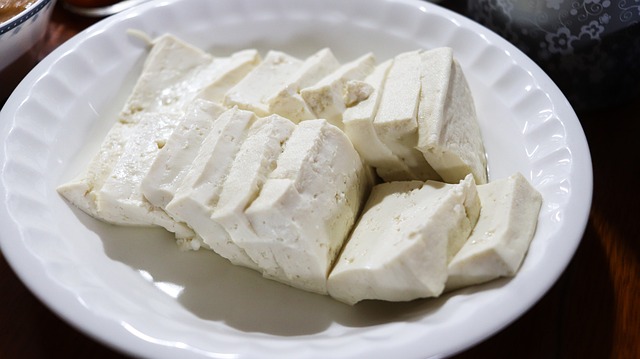Diet, like training, is an essential component of bodybuilding. Your muscles get the nutrients they need from the right foods in the right amounts to recover from workouts and develop into bigger, stronger muscles. Because of this, every bodybuilder should have sufficient knowledge of their meal. That said, soy is one of the most beneficial foods for gaining lean muscle mass and reducing body fat.
However, there are many misconceptions about soy among bodybuilders. This article will clear out 5 misconceptions and explain how soy is essential to a bodybuilding program alongside rest and recovery.
- Soy is Not a High-quality Protein
Many Americans, who grew up on meat and potatoes, are sceptical of plant-based proteins. Some people are concerned that soy isn't a "high-quality" protein. However, the truth is soy is one of the best innovative food and energy resource that provide high quality protein for the body.
It contains all nine essential amino acids (EAAs) the body requires from food. These amino acids are necessary for protein synthesis, tissue repair, and nutrient absorption and transport.
Bodybuilders need to synthesize significantly more protein than non-athletes (due to their ongoing efforts to produce muscle growth and strength gains). This necessitates consistently high levels of amino acids. Thus, incorporating soy into a diet can be highly beneficial to them.
- Soy is Bad for the Bones
This is one of the biggest misconceptions when it comes to soy. Cow's milk is well known for its beneficial effects on bones. It almost seems as if we don't want to accept the possibility of something else being better.
But think about those who are lactose intolerant. How do they get the nutrients their bones need? How would this fraction endure if there was no other choice? Soy is a solution in such a case.
While soy may not have as much calcium as cow's milk, it does have significantly more magnesium, which is also essential for strong bones. According to studies, women who consumed 40 grams of soy daily for six months had higher bone mineral density than those who did not. Additionally, compared to cultures where cow's milk is more prevalent, the Chinese and Japanese, who have consumed soy for centuries, have fewer cases of osteoporosis.
- It is possible to Avoid Soy Completely
Unfortunately, neither vegans nor non-vegans can avoid soy altogether. The exciting thing about soy is that it has grown into a $5,2 billion industry. Because the bean has so many remarkable properties, every part of the bean can be used.
Soybeans are processed into soy flour, concentrates, and isolates. However, these are not the only soy products available. Soy oil is now the base for most oils, and vitamin E extracted from soybeans is added to moisturizers, baby food, bread, and sauces. The vast majority of soy produced worldwide is used to make animal feed for meat-producing animals. Soy's properties reach us through the meat we eat.
- Soy Feminizes Men
Have you ever heard the term "soy boy"? Some people believe that because soy contains plant-based estrogens, eating too many soy products can disrupt the balance of men's hormones, causing men to lose muscle tone, develop breasts, or experience erectile dysfunction. That, thankfully, is not the case.
Soy consumption has nothing to do with the condition. Most males have some degree of gynaecomastia, which is curable 90% of the time.
A meta-analysis of nine clinical research indicates that soy consumption did not affect testosterone levels or sperm production in men. And according to a study released in Reproductive Toxicology in March 2021, soy and its isoflavones did not affect men's overall testosterone, free testosterone, estradiol, or estrone, even at consumption levels exceeding a typical Japanese diet.
The takeaway message: There is no convincing evidence that soy alters male appearance or physical prowess.
- 5.Soy hinders nutrient absorption.
You may have heard about alleged "antinutrients" if you follow nutrition trends. It is believed that these food additives, which include soy, prevent you from absorbing some vitamins and minerals. According to Pflugradt, soy contains phytates, oxalate, and lectins, which may inhibit the absorption of iron, calcium, and zinc.
However, soy's antinutrients are probably not a significant cause for concern. According to research published in Nutrients in October 2020, it is still unclear how much they hinder nutrient absorption. And it's unlikely to make your nutrient levels plummet unless you consume soy endlessly.
Besides, compared to all the advantages that soy foods offer, concerns about nutrient absorption are insignificant.
Conclusion
With ongoing research, we are learning more about how soy isoflavones affect the human body. Most recent studies show that soy in the typical Western diet is safe and beneficial. It is safe to include a recommended amount of soy in your diet regularly. To be safe, one can also speak with a dietitian since soy myths and misconceptions are widespread.





Comments